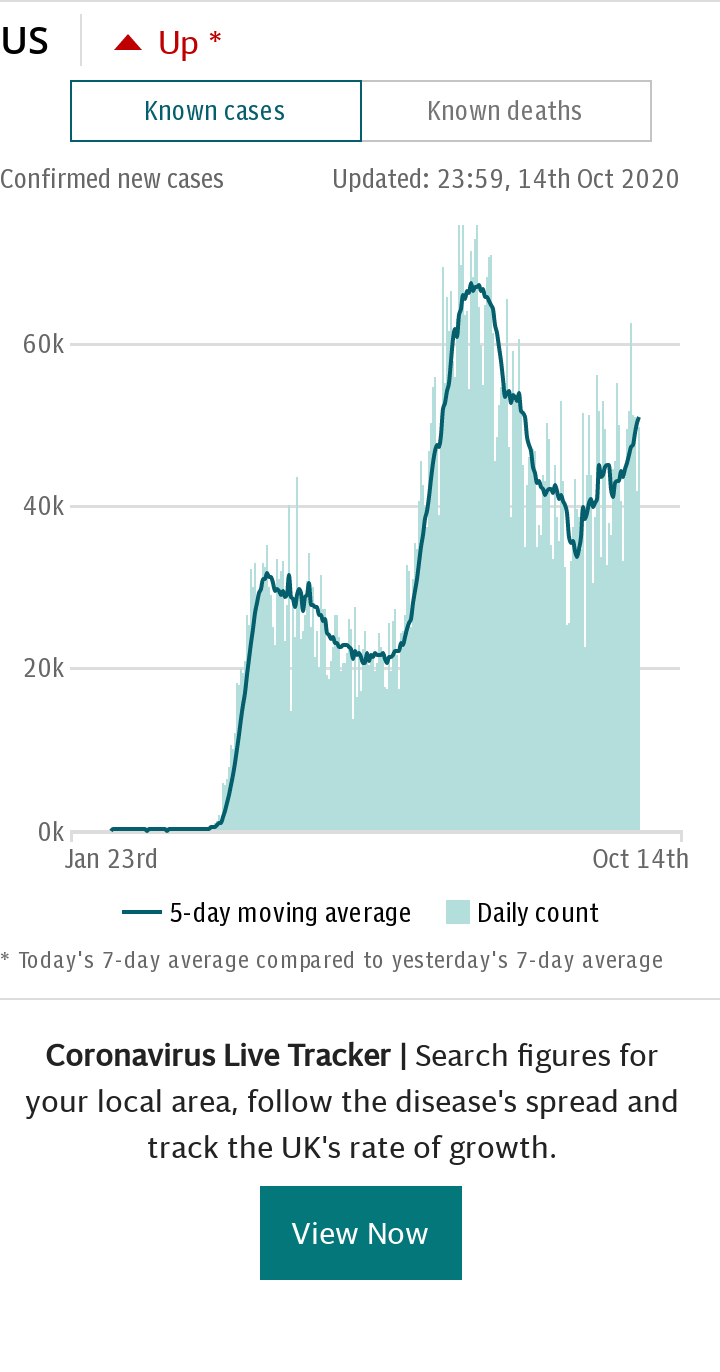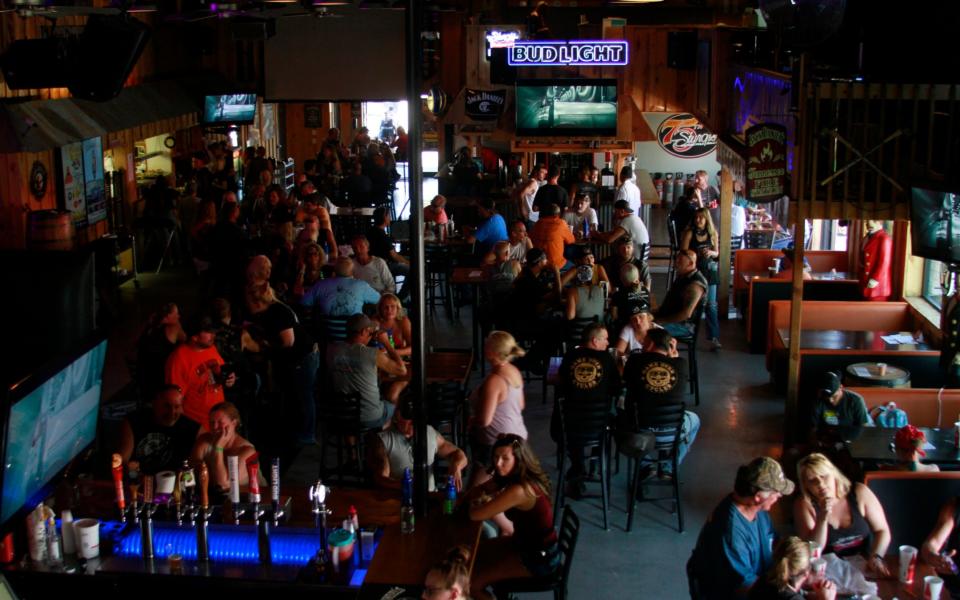'No country' has an effective strategy to prevent outbreaks linked to pubs and clubs, experts warn


Two men and a woman walk into a bar… unfortunately they're not around to tell the tale. During a pandemic a pint is no longer risk-free and the last laugh is rarely funny.
This is clearly the extreme scenario, but from Aberdeen to Seoul, coronavirus outbreaks linked to pubs, bars and nightclubs have become commonplace. The layout of the venues themselves coupled with human behaviour create the “perfect storm” for the virus to spread, experts say - while tracing such an outbreak after the event is a tall order.
With winter on the horizon and fewer opportunities to socialise outside, there are growing concerns that this problem will only get worse - especially as governments attempt to reopen more and more aspects of society.
“No country I know of has got a handle on how to deal with this,” says Prof Devi Sridhar, chair of global public health at Edinburgh University. “It almost feels like reopening the nighttime economy is the piece that makes the tower of building blocks collapse.”
There’s no shortage of examples. In South Korea a 29-year-old man went to five bars and nightclubs in May. He later tested positive for Covid-19, sparking a super-spreading event that infected more than 100 people and threatened to spark a major resurgence in infections.
As a result Seoul’s Mayor shut all bars and nightclubs and delayed plans to reopen schools in response, amid difficulties tracing potential contacts.

In the US, outbreaks in bars and pubs have also prolonged the country’s epidemic, after states including Florida, Arizona and Texas reopened before widespread community transmission was stemmed (see chart above).
In Louisiana - where, in one instance, at least 100 people tested positive for Covid-19 after visiting bars in a district called Tigerland - roughly a quarter of cases detected since March and not linked to places like nursing homes and prisons have been traced back to bars and restaurants.
Meanwhile in Europe, Spain closed an entire town - Totana in Murcia, which is home to 32,000 people - after 55 people who met at a bar tested positive for coronavirus. On Friday all Spanish regions were advised to shut clubs after hundreds of cases were linked to the country's nightlife.
And closer to home, more than 170 people have tested positive and some 900 contacts traced after 28 bars and pubs in Aberdeen were linked to a super-spreading event, forcing the city back into lockdown (see video below).
The venues themselves are part of the problem - bars, pubs and clubs come in a variety of shapes and sizes, with some easier to make "Covid secure" than others. But often they are poorly ventilated, loud, enclosed spaces with few windows to open, providing the ideal conditions for the virus to spread.
However experts say it is this combined with human behaviour that turn these settings into one of the “most dangerous” places during a pandemic.
“The whole activity of going to a pub is about socialising, not social distancing,” says Jonathan Ball, professor of molecular biology at the University of Nottingham. “That’s it in a nutshell - how do you socially distance while socialising? It's very difficult to do - and to police.”
In fact many of the things people love most about their local haunt - from the booze and conversation to the music and dancing - increases the risk of transmitting or picking up the virus.
“People are more uninhibited, especially with alcohol involved,” says Dr Julian Tang, a consultant virologist at Leicester Royal Infirmary. “You talk more, you laugh and tell jokes - you don't get that atmosphere in an office or an airplane, so that kind of aerosol transmission and exposure is not happening. And you don't wear a face mask at a rave.
“It's the perfect storm to transmit the virus,” he says.
Research published in Nature journal has found that people release up to 10 times more particles from speech than a cough, regardless of the language. And talking more loudly, perhaps to be heard over the music or the hum of other conversations, only increases the amount of viral particles we emit.

But bars, pubs and clubs are not the only places linked to chains of transmission - super spreading events can take place in workplaces, restaurants, nursing homes, or places of worship.
The difference, says Prof Sridhar, is the tendency to bar-hop means the virus has the opportunity to spread much further. And while an individual at work will be relatively certain about who they came into contact with, it is often less clear in a pub or club, where people mingle and alcohol is involved.
“Tracing becomes really hard, messy and complex in this scenario,” says Prof Sridhar. “If you can quickly get on top of clusters in a call centre or even a house party, then you don't need a lockdown as the test and trace system can deal with it.”
But this system comes under immense strain when it comes to the night time economy - especially when some venues are not taking names or individuals are supplying false information.
“Often it's too late by the time you've had the chance to track everyone down, so you have no option but to introduce new, more widespread restrictions to prevent further community transmission,” Prof Sridhar says.
This is clearly a bigger issue in cities than in a rural village pub, adds Dr Tang, while younger people tend to be driving the rise in infections meaning there has so far not been a corresponding surge in hospitalisations.
Data from countries including the Belgium, the Netherlands and England - where people aged between 20 and 39 account for almost 40 per cent of new cases - suggests younger generations returning to some semblance of normality are driving new upticks in cases.

But the economic hit of sweeping closures in hospitality is unsustainable, hitting businesses and their often young workforce, Dr Tang believes.
In the UK, for instance, the night time economy is the fifth-largest industry, contributing roughly eight per cent of the country's employment and some £66 billion in annual revenue, according to a report from the Night Time Industries Association published last year.
The balance is difficult to strike, says Prof Sridhar. “It's hard to know how to solve this issue beyond strengthening existing mitigation measures - for instance using ID to ensure people give their real names to help contact tracing teams when super spreading events do happen.
“With winter approaching and school reopenings on the horizon, I think this balance is going to become even more difficult. My sense is that Europeans want it all - mobility over borders, schools back, our privacy, and open pubs.
“But all of that is going to lead to multiple local lockdowns - at some point tough decisions will need to be made, and we will need to give something up,” she adds.
Protect yourself and your family by learning more about Global Health Security


